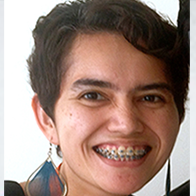An interesting comment by a colleague during a lab meeting yesterday caught my attention: “You can stay in the lab and find the cure for HIV, but if you don’t know how to present your work, then there is no point.” [1]
I couldn’t agree more with her. Granted, one must not oversell one’s scientific research – we all know the buzzwords to a media frenzy are “cure” and “vaccine” – but there is a need for scientists everywhere to communicate their findings and to do so well. In order to do this, there is a need for scientists especially, and students and academia everywhere in general, to be able to read, write and converse fluently in English.
I would like to think that this is the motivation behind the recent news article citing our deputy prime minister who is also the minister of education on a soon-to-be-revealed policy that necessitates English as a compulsory subject to pass among public university students. I view this as a positive move, and logically these students should pass English in primary school and high school as well before entering institutions of higher learning. Even more logically, our education system should decide already on the language we use to teach our students from young [2].
Arguably, there also exists a need to uphold our Bahasa Kebangsaan. I myself came from the era where I learnt almost everything in Bahasa Malaysia, and I learnt English only as a subject in school. However, I was lucky to have foresighted parents who conversed with me in English since I could barely speak. I was also under the strict tutelage of my late grandfather whose bugbear was finding grammatical errors in the mainstream English newspapers.
To have a good command of any language, we need to use it. From personal experience, I find using English in my daily life to be beneficial as a new wealth of knowledge was and is open to me by having this command of a second language. Most science books are in English, and I remember having the full series of “How My Body Works” when I was very young which arguably started my love affair with science.
It helped me tremendously in university, when the transition from where most everything was in Bahasa Malaysia up until SPM, to nearly all lectures conducted in English by the wonderful array of genetics and molecular biology lecturers I had. I felt that it was definitely a smoother and easier transition for me than for many fellow students who struggled with the English language itself. I remember having to re-explain the process of DNA replication to my friend in Bahasa, simply because she couldn’t understand it when it was delivered in English.
For some reason though, there are many incidences where my conversing in English has caused upset. The first time I experienced this was back in uni days, and over the years, comments such as “Orang Malaysia kan? Boleh cakap bahasa tak?” are numerous. It seems that people question how Malaysian I am by the way I speak. Now, I don’t entirely blame these interrogators – there are too many English words that have been Malay-nised nowadays, so much so that one can’t help but feel that the Malay language is threatened. Whatever happened to “belanjawan” (now “bajet”), “penonton” (now “audiens”) and closer to my heart, when talking about cervical cancer caused by the Human Papillomavirus (HPV), “barah pangkal rahim”, now popularly known as “kanser serviks”?
The bigger picture here is the ability to grow knowledge-wise, I think. Being fluent in two languages (and for some, three or more – Malaysians are awesome!) should increase our abilities to gain more knowledge, to have more intellectual discourse and communicate our findings and opinions to a myriad of audiences whom we will miss if we were only able to converse in one particular language [3].
Now, if only we can agree and implement a reform long enough to significantly see the positive effects on our education system in the long term.
[1] We were discussing the case of the Mississippi baby, thought to be the first success story of implementing early anti-retroviral treatment to control the virus. Sadly, the baby relapsed and the race for a HIV cure is still wide open.
[2] Maths and Science were taught in Bahasa Malaysia when I was in school in the late 90s. This education policy was changed to teaching these subjects in English from the year 2003, followed by a reversal in 2012.
[3] I have also witnessed great European and Japanese scientists struggle with their presentations at international conferences due to their insecurities with using the English language. This is not just a Malaysian issue. – September 29, 2014.
* This is the personal opinion of the writer or publication and does not necessarily represent the views of The Malaysian Insider.


Comments
Please refrain from nicknames or comments of a racist, sexist, personal, vulgar or derogatory nature, or you may risk being blocked from commenting in our website. We encourage commenters to use their real names as their username. As comments are moderated, they may not appear immediately or even on the same day you posted them. We also reserve the right to delete off-topic comments